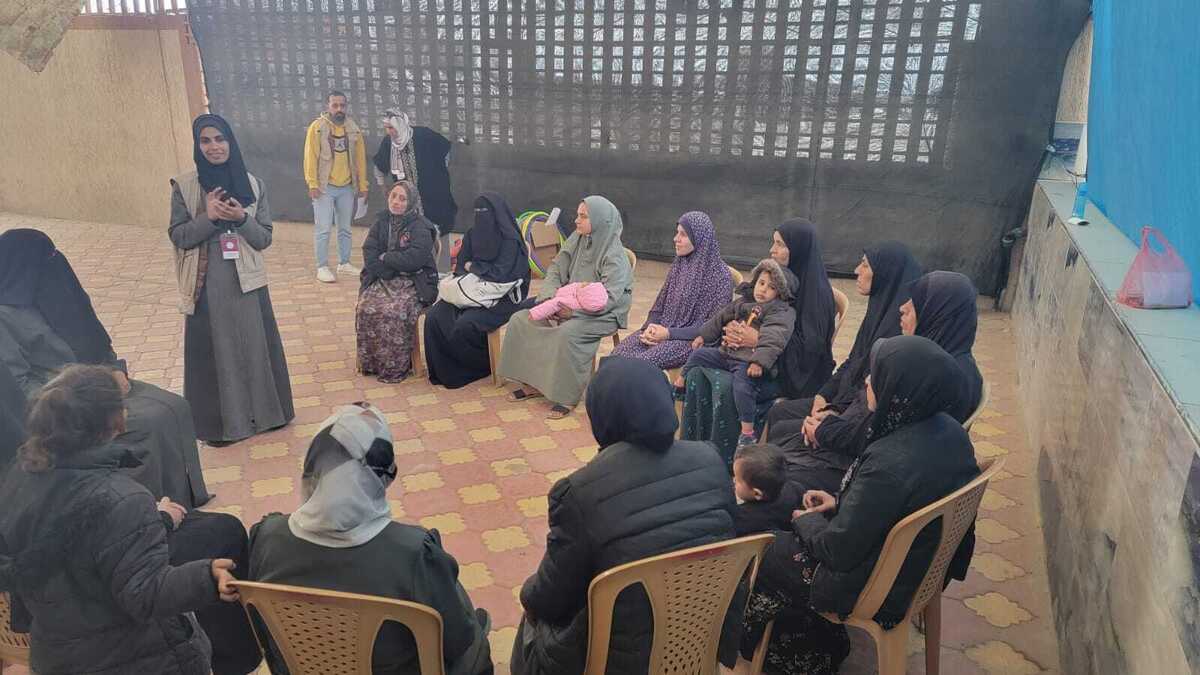During one of the most challenging humanitarian crises, Caritas has been at the forefront of providing essential health care services in Gaza. The needs of local people remain overwhelming. Over a year of conflict has left Gaza’s health infrastructure in terrible condition, and most medical facilities remain non-functional. In this critical moment, here are three key ways that Caritas' clinic is making a difference.
1. Primary health care services
Caritas has been providing humanitarian and medical assistance in Gaza for many years, especially since the escalation of the war. With approximately 100 medical staff in Gaza, our partner organisation Caritas Jerusalem continues to offer essential healthcare services to those in need. In collaboration with Caritas Czech Republic and supported by the Czech Ministry of Foreign Affairs, these efforts include a clinic that offers wide range of primary health care services.
From treating common illnesses in children to providing care for chronic diseases such as hypertension and diabetes, the team ensures that patients receive comprehensive medical attention.
“This is my second visit to the clinic. I was first treated for a severe urinary tract infection and then for hypertension. The treatment is excellent,” shares Manal, a 48-year-old patient.
Despite seeing between 60–80 cases daily, the clinic faces severe shortages of essential medical supplies. Given the extensive damage to Gaza’s health infrastructure, access to primary care is extremely limited, making Caritas' role essential. The humanitarian need remains enormous. As Kateřina Velíšková, Regional Manager for the Middle East at Caritas Czech Republic, noted, "The situation remains dire. There is still an urgent need for continued support in both primary care and medicine distribution."
2. Psychological support
The psychological impact of prolonged conflict in Gaza is devastating. Caritas recognises the immense trauma faced by residents, particularly children and women, and has prioritised mental health support at the clinic. Daily therapy sessions for children and dedicated support groups for women provide much-needed psychological relief.
“The psychologist from Caritas received me very well. After years of living with depression and trauma from past abuse, these sessions have given me hope,” says 28-year-old Nariman.
The people of Gaza continue to suffer from psychological scars left by the conflict. Reports indicate that mental health needs in Gaza are overwhelming. The long-term psychological consequences of war require continued and structured support to help people recover and rebuild their lives.
3. Medicine distribution
With much of Gaza’s healthcare infrastructure in ruins, access to essential medicines is severely limited. Caritas plays a crucial role in ensuring that critical medications reach those in need. The clinic provides both immediate medical care and ongoing treatment for injuries and chronic conditions.
Raad, a 21-year-old who was injured in a bombing, was directed to Caritas for treatment. “The treatment here is excellent. I was at risk of losing my finger, but thanks to consistent care, amputation was avoided,” he says.
The supply of essential medications remains insufficient. Caritas continues to work tirelessly to ensure that the most vulnerable populations receive the medicines they need, but international support is crucial to continue these efforts.
A call for continued support
The situation in Gaza remains fragile. After more than a year of war, the healthcare system has been devastated, and the psychological trauma faced by residents is overwhelming. As highlighted by Caritas Czech Republic and Caritas Jerusalem, ongoing mental health support and access to primary healthcare are essential for long-term recovery.
We are able to help people in Gaza through this clinic thanks to the support of the Ministry of Foreign Affairs of the Czech Republic and the generosity of those who contributed to the "Caritas for Gaza" appeal.












